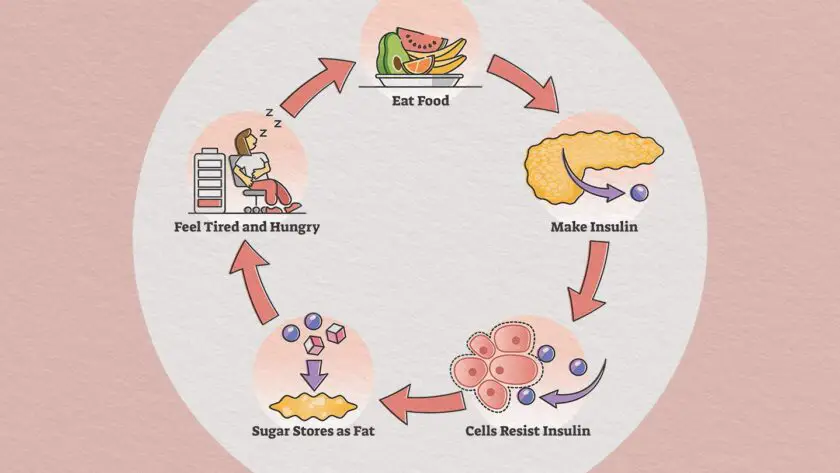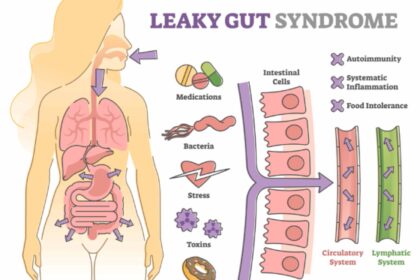Emerging as a silent and insidious health threat, insulin resistance has been identified as the primary driver behind a trifecta of deadly conditions: heart disease, dementia, and diabetes. This alarming health crisis has prompted researchers and healthcare professionals to take a closer look at the underlying mechanisms and, more importantly, discover that insulin resistance is not only preventable but also 100% reversible.
A rapidly expanding body of scientific evidence now supports the notion that tackling insulin resistance can not only improve our overall health but also offer a glimmer of hope for preventing and reversing the detrimental effects of heart disease, dementia, and diabetes.
We will explore the interplay between insulin, the hormone responsible for regulating blood sugar levels, and the cells’ ability to respond to it. By unraveling the complexities of insulin resistance, we can gain a better understanding of how it contributes to the development of these debilitating conditions.
Moreover, we’ll uncover the key factors that fuel the rise of insulin resistance in modern societies, shedding light on the dietary and lifestyle choices that play pivotal roles in its development. Armed with this knowledge, we can empower ourselves to make informed decisions and adopt strategies that promote insulin sensitivity, keeping these life-threatening diseases at bay.
But perhaps the most exciting revelation lies in the remarkable discovery that insulin resistance is a reversible condition. Through a combination of dietary adjustments, exercise regimens, and other lifestyle modifications, individuals can reclaim their health, restoring insulin sensitivity and, in turn, staving off the looming specters of heart disease, dementia, and diabetes.
What Is Insulin Resistance?
Insulin resistance, besides being the driving force behind heart disease, dementia, and diabetes, also has far-reaching consequences on our overall health. It plays a pivotal role in promoting muscle loss as we age, leading to a condition known as sarcopenia. This condition sets off a rapid spiral into metabolic chaos and disability, further compounding the health challenges posed by insulin resistance.
Remarkably, despite its widespread impact, insulin resistance remains largely undiagnosed, affecting a staggering 88 percent of Americans to some degree. Astonishingly, 90 percent of those affected are oblivious to their condition, unaware that they are grappling with this dangerous health issue.
Taking control of our blood sugar and insulin levels becomes imperative if we seek to enjoy a long and healthy life. A prominent Harvard cardiologist once emphasized that the key to pristine arterial health among centenarians lies in insulin sensitivity, where their cells require very little insulin to manage blood sugar efficiently.
However, few doctors regularly monitor fasting insulin levels or insulin response after consuming sugar. These tests serve as a perfect gauge for understanding how well we are aging and can provide crucial insights into our metabolic health.
Understanding how insulin resistance develops is crucial in devising effective strategies for reversal. The process is simple: overconsumption of starches and sugars leads to the pancreas pumping out excessive amounts of insulin.
Consequently, our cells become desensitized to its effects, necessitating even higher insulin levels to maintain normal blood sugar. Eventually, this vicious cycle culminates in type 2 diabetes, along with a myriad of other issues, such as increased belly fat, inflammation, hormonal imbalances, and even brain damage.
Alarming statistics reveal that we consume an average of 152 pounds of sugar and 133 pounds of flour per person annually. Processed foods constitute a staggering 60 percent of our calorie intake, contributing significantly to the rising prevalence of insulin resistance.
It’s no surprise then that half of Americans over the age of 60 now suffer from insulin resistance, with the condition affecting younger individuals, even children as young as three years old, who are now diagnosed with type 2 diabetes.
The consequences of insulin resistance extend beyond just individual health; it places a substantial economic burden on healthcare systems worldwide. The management of heart disease, diabetes, and dementia consumes significant resources, but the encouraging news is that addressing insulin resistance at its root can not only improve health outcomes but also alleviate the financial strain associated with chronic disease care.
To combat this health crisis, adopting a diet that enhances insulin sensitivity is vital. The Pegan Diet, a combination of paleo and vegan principles, is hailed as the perfect insulin-sensitizing diet. By focusing on whole foods, healthy fats, lean proteins, and low-glycemic carbohydrates, the Pegan Diet provides a balanced approach that stabilizes blood sugar levels, reduces inflammation, and supports weight management.
For those already struggling with poor metabolic health, a more drastic approach may be necessary, involving the elimination of all starches and sugars for several months or even a year. This approach, known as a low-carb or ketogenic diet, has shown promising results in restoring insulin sensitivity and promoting weight loss. However, it is essential to approach such dietary changes under the guidance of a healthcare professional to ensure safety and effectiveness.
Over time, this transformative dietary shift will foster insulin sensitivity, allowing for a gradual reintroduction of starchy vegetables, fruits, beans, and whole grains. The key is to emphasize nutrient-dense, fiber-rich foods that provide sustained energy and keep blood sugar levels stable.
In addition to dietary modifications, regular physical activity is crucial in combating insulin resistance. Exercise helps improve insulin sensitivity, promotes weight loss, and enhances cardiovascular health. Incorporating a combination of aerobic exercises, strength training, and flexibility exercises can significantly contribute to reversing insulin resistance and its associated health risks.
Furthermore, addressing stress and prioritizing sleep are essential aspects of the insulin resistance reversal process. Chronic stress and sleep deprivation can disrupt hormone balance, leading to insulin resistance. Implementing stress-reduction techniques, such as mindfulness meditation, yoga, or deep breathing exercises, can have a positive impact on insulin sensitivity.
In conclusion, understanding the pivotal role of insulin resistance in driving heart disease, dementia, and diabetes is a crucial step towards improving our health and well-being. Armed with this knowledge, we can empower ourselves to take charge of our dietary choices and lifestyle habits, paving the way for a future where insulin resistance is not only preventable but also reversible—a journey towards a longer, healthier life with the promise of vitality and vigor.
By embracing a balanced, insulin-sensitizing diet, staying physically active, managing stress, and ensuring sufficient rest, we can reclaim control over our health and rewrite the narrative of chronic disease. Together, let us embark on this transformative path towards a brighter, healthier future.
How To Control Blood Sugar Levels With Antioxidants:
The video below explains how blood sugar spikes can damage the gut and insulin in the body. Wath the video to learn how antioxidants play a role in supporting healthy insulin levels in the body and to learn how to enjoy eating out without having to worry about the negative health aspects of a night on the town as much!






